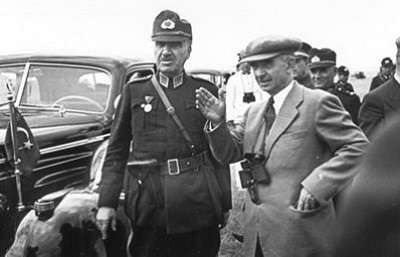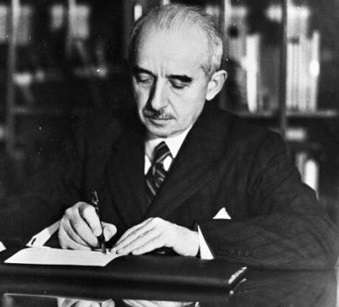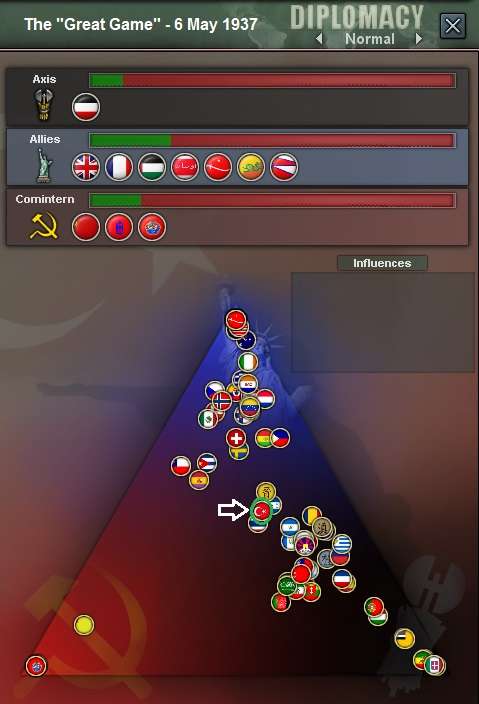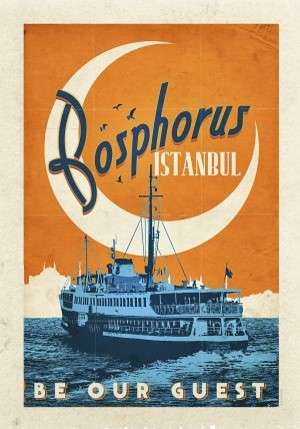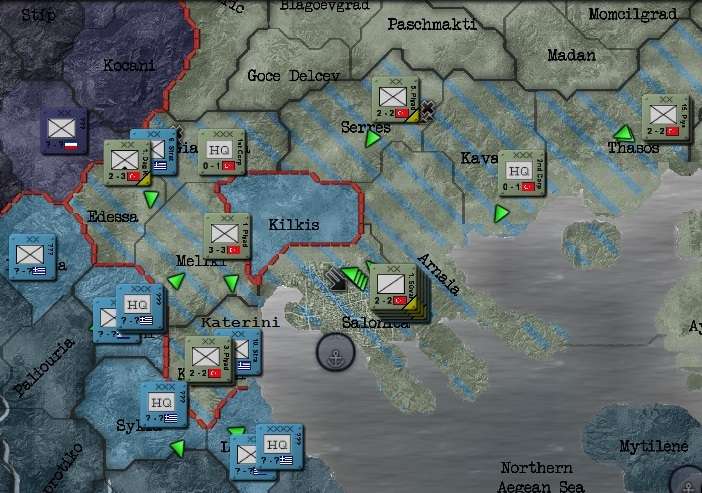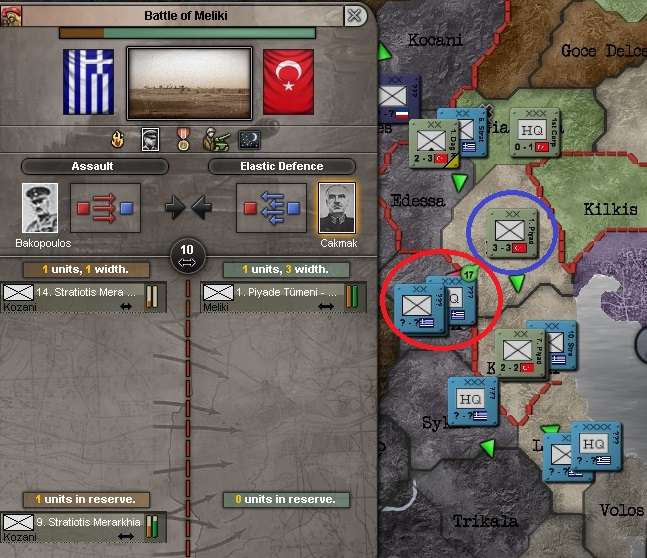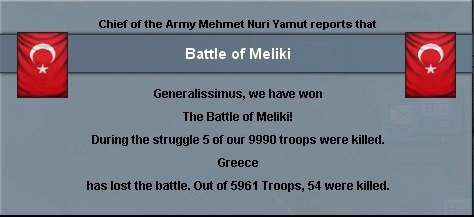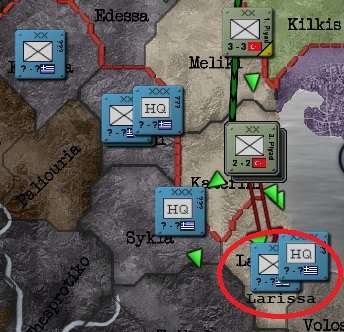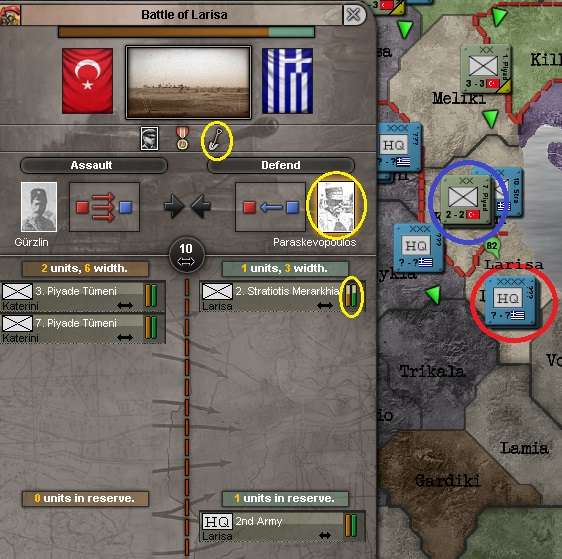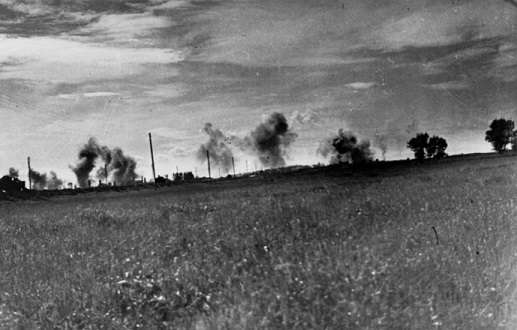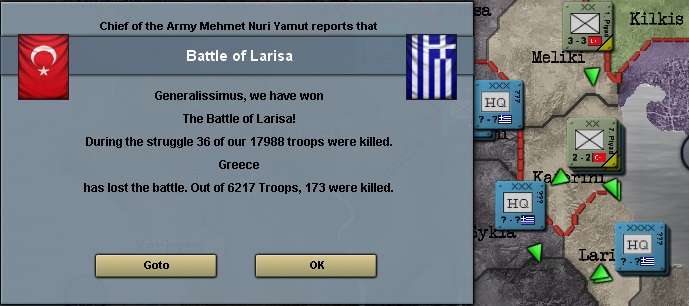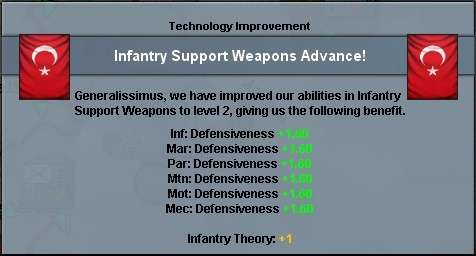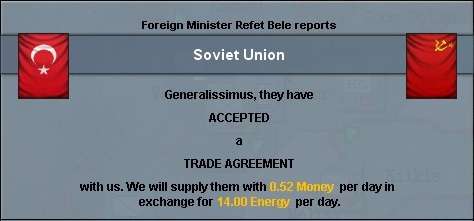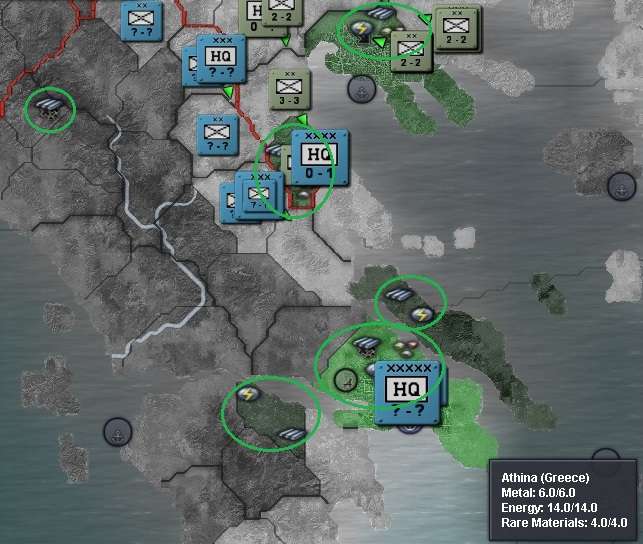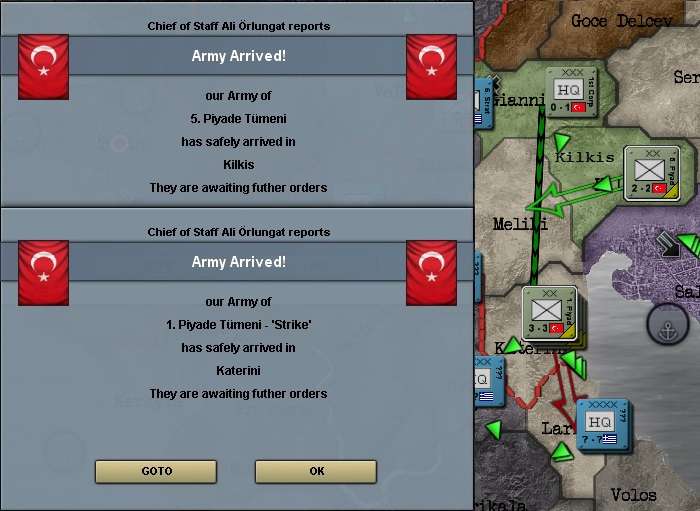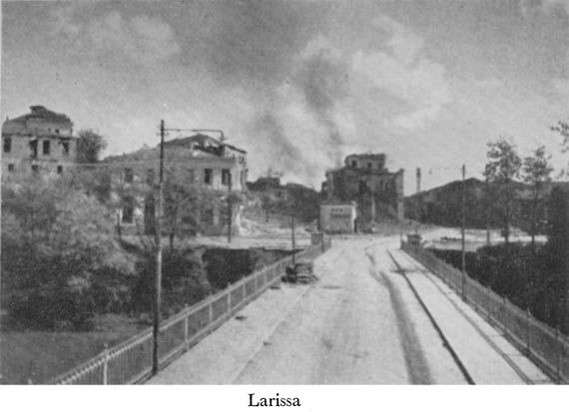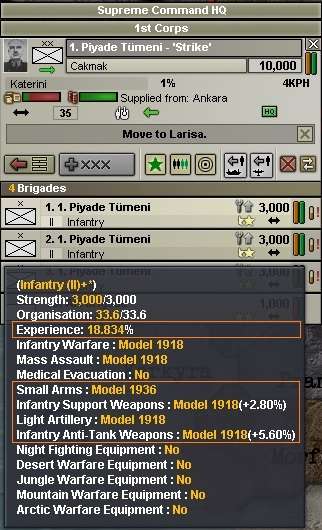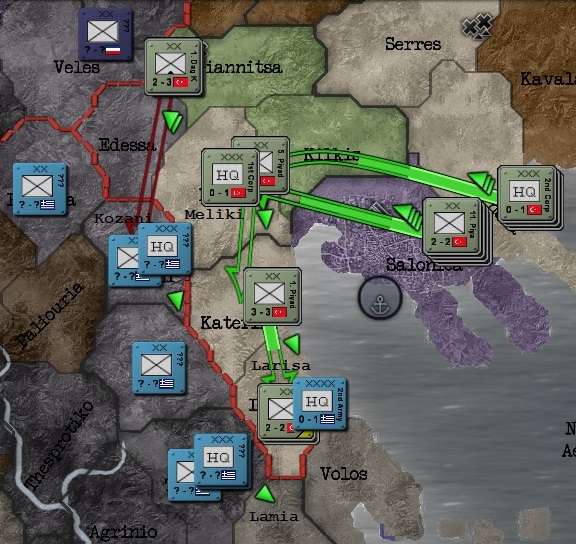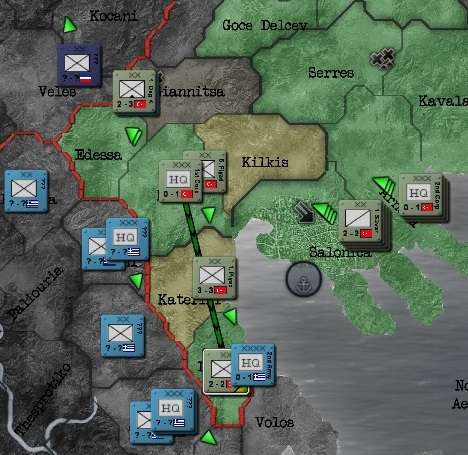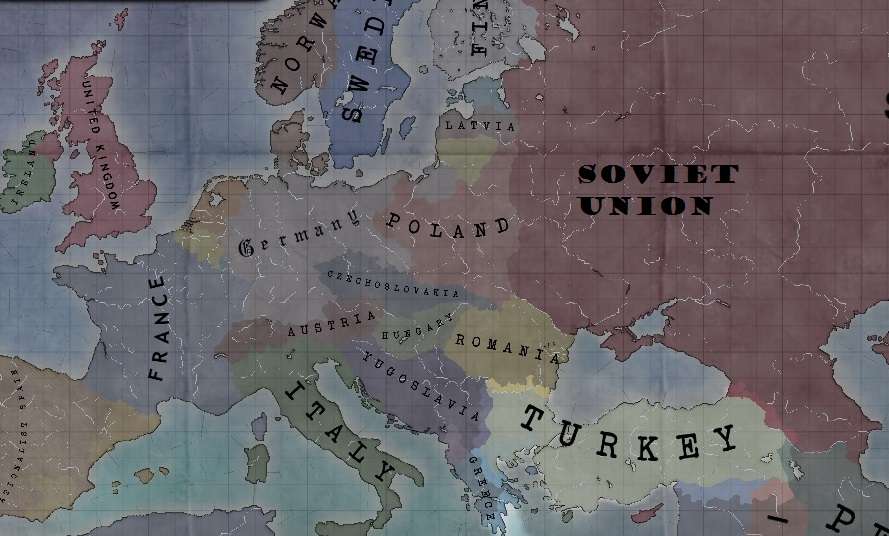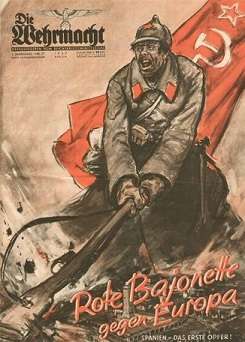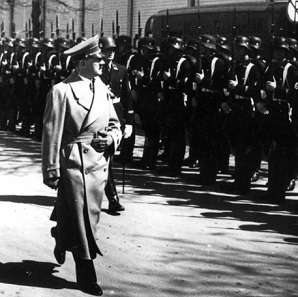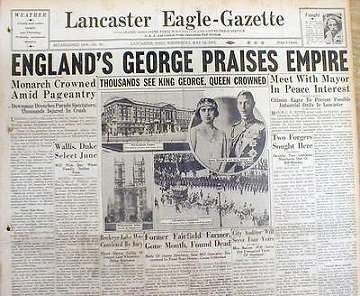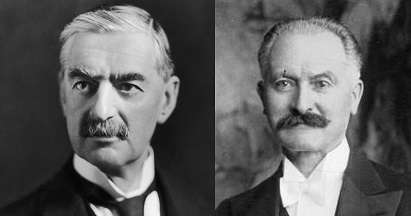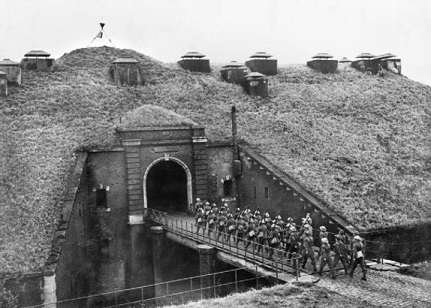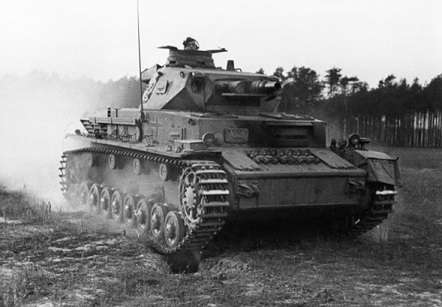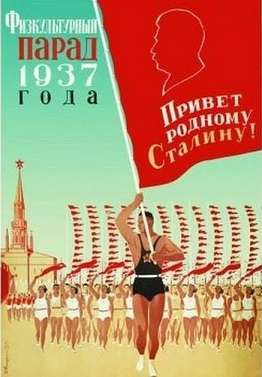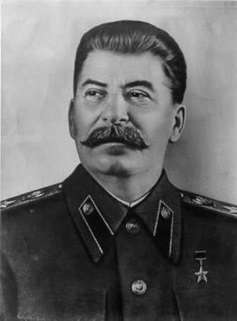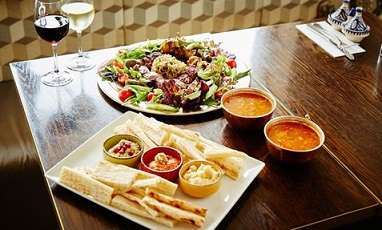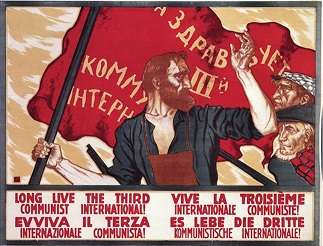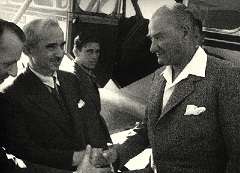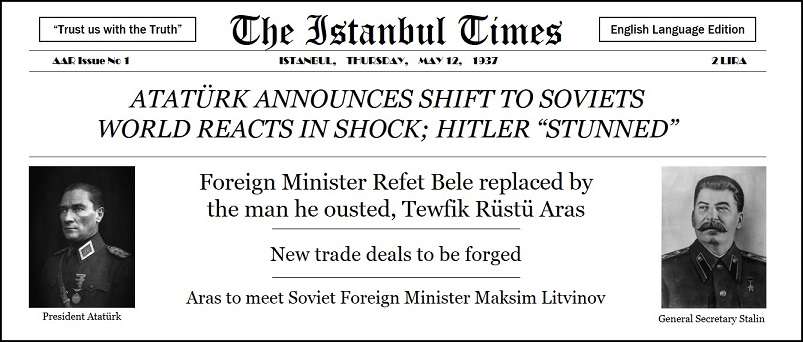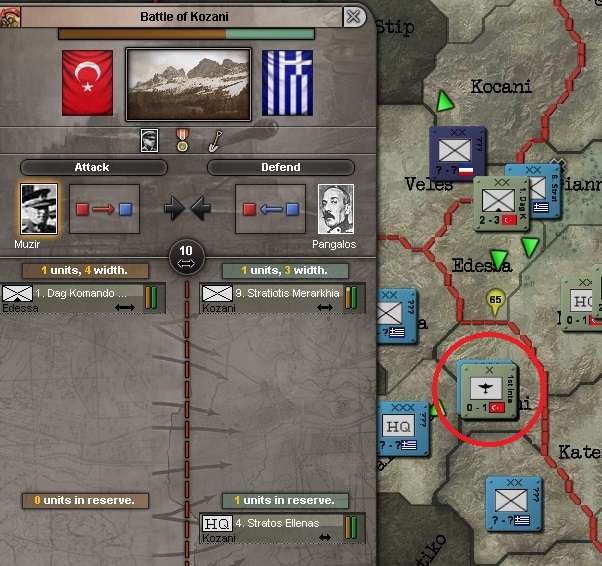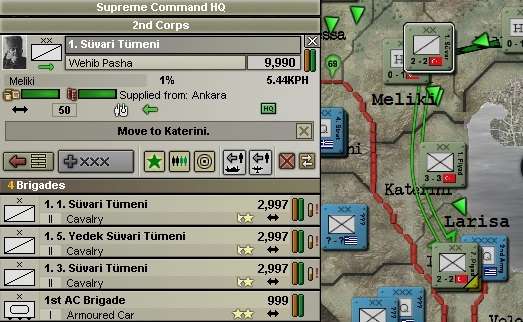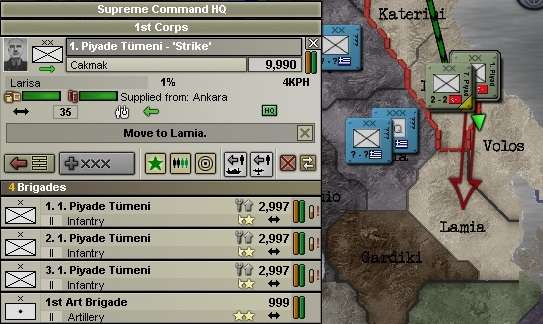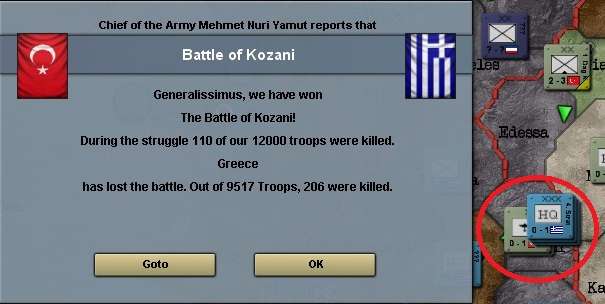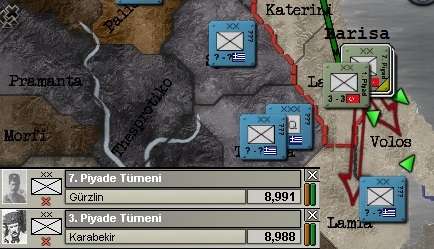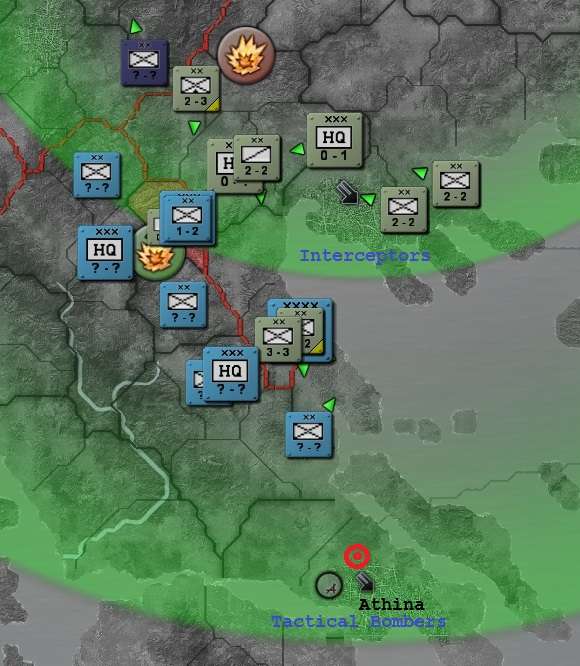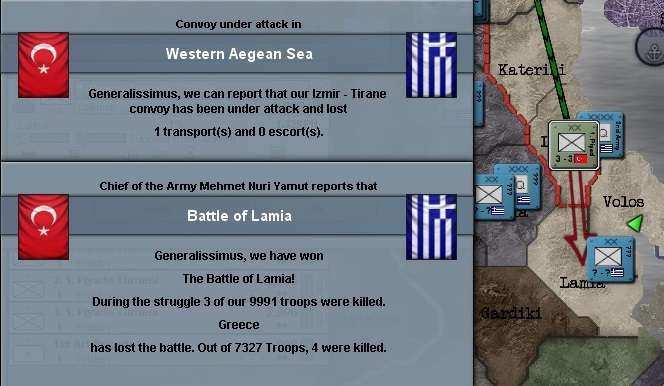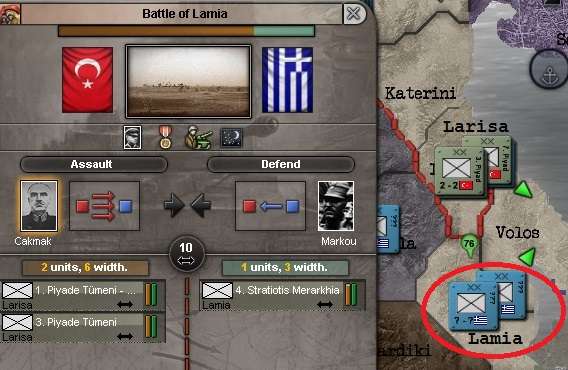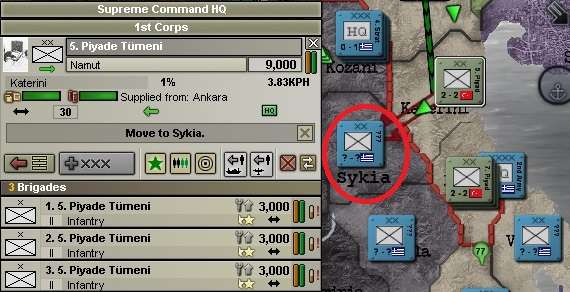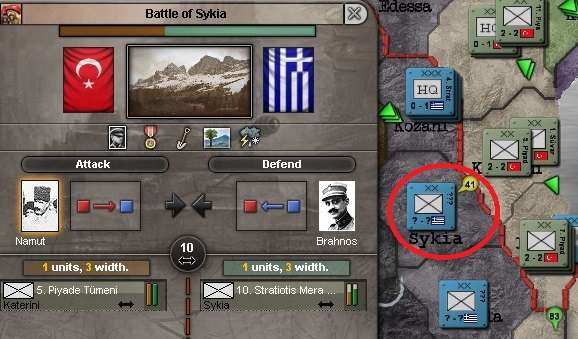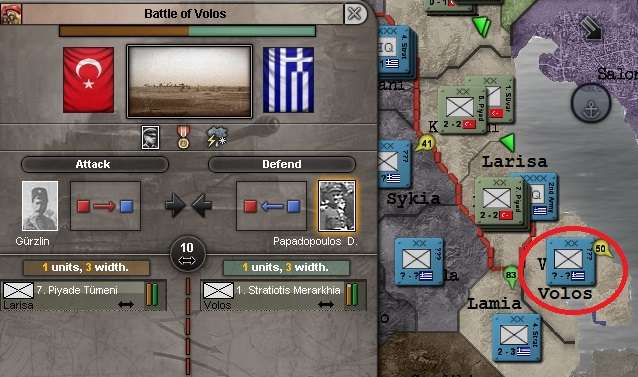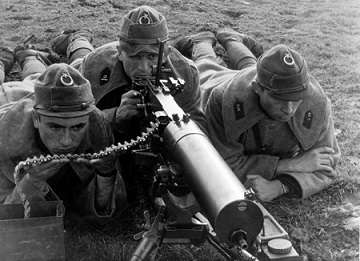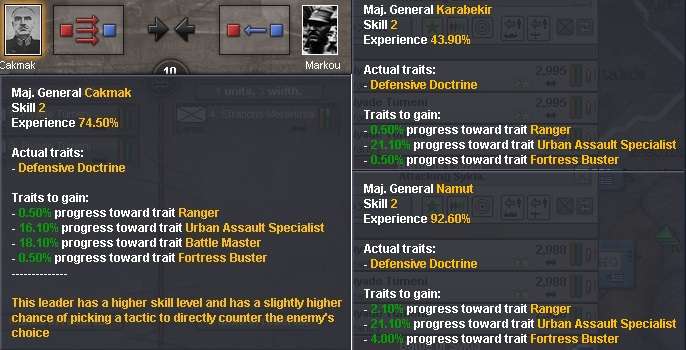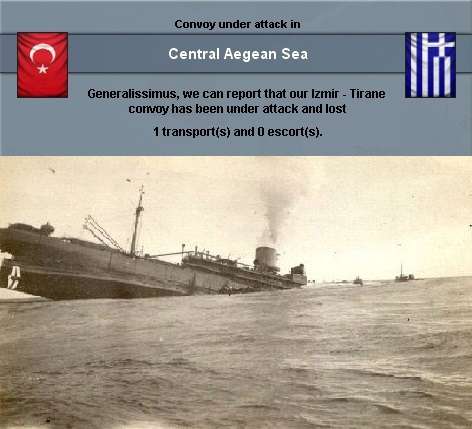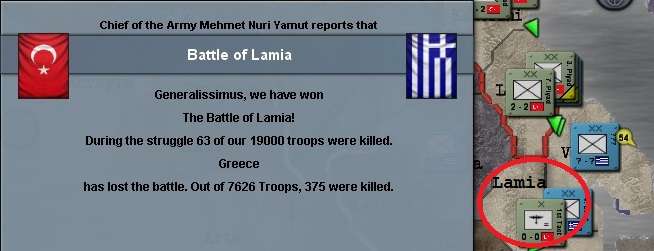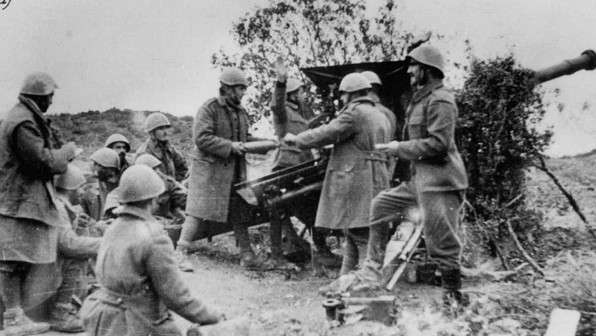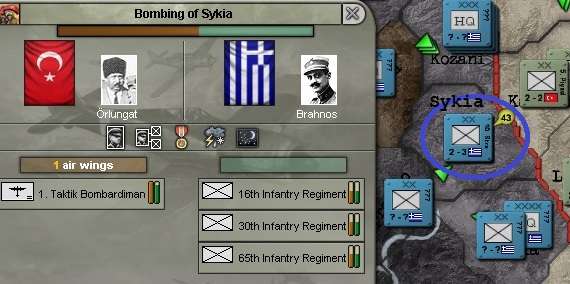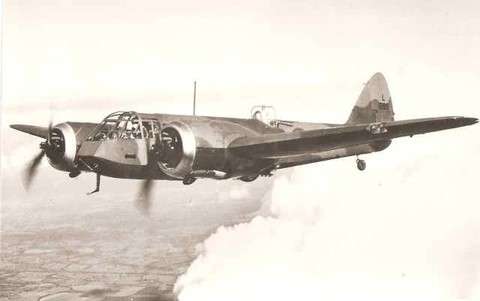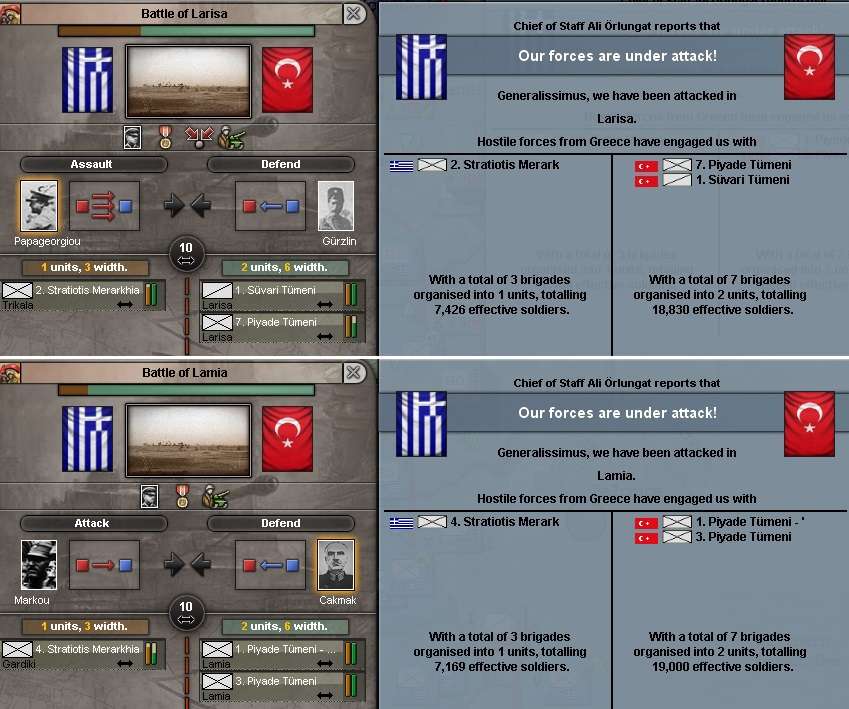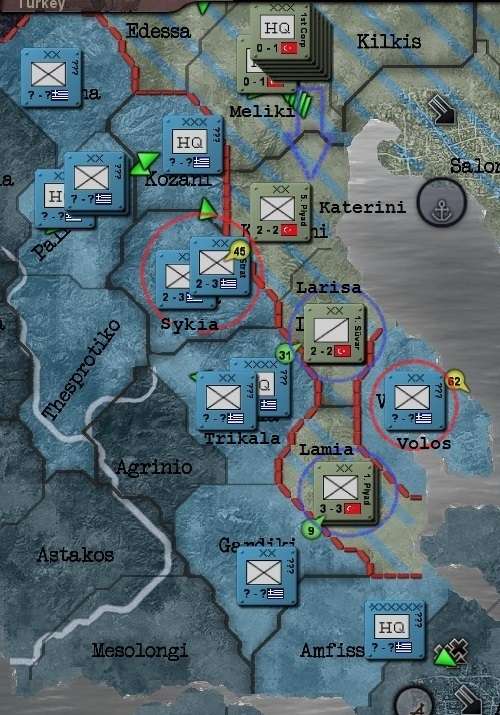Chapter 17: War with Greece #4 - "Four Battles" (12 to 17 May 1937)
12 May 37 (D+17)
Recap. 1st Corps lead elements are in
Larisa, objective
Athina; 1 Mtn Div is slogging down the mountains on the 1st Corps' flank; 2nd Corps is still switching across from
Salonica to follow up and support 1st Corps. The political and diplomatic machinations back in Ankara are very distant to the men at the front: there is a war to win in Greece first!
1200. 1 Mtn Div is finally able to engage the enemy in
Kozani, with the attack designed to take some pressure off our supply lines on the coast. Given the enemy have had a chance to entrench, are in mountainous terrain, and have managed to build up their strength and organisation, it could be a tough battle. Air support has been called in to help improve the odds.
Late that night, as Inönü arrives back at HQ 1st Corps (now established in
Meliki) from Ankara, Cakmak hands back the reins of command. He is in turn briefed on the momentous events in the capital, before he heads to
Larisa to join the advancing 1 Inf Div, which will spearhead our advance on
Lamia. Things are about to get busier and more complicated soon as our units approach the enemy across the front. This will test the fighting spirit and expertise of our forces to carry out a bold offensive against prepared defences.
13 May 37 (D+18)
0600. Wehib Pasha and the 1st Cavalry arrive in
Meliki first thing in the morning. They are sent straight to the southern front. Their mobility will be valuable, either protecting our flanks or exploiting gaps in the enemy lines.
1400. 1 Inf Div, with Cakmak back in charge, arrive in
Larisa and, as planned, strike immediately towards
Lamia. It seems unoccupied for now, but we have had earlier reports of Greek reinforcements heading up from
Athina. We will try to seize
Lamia before the enemy can defend it properly.
While this is happening, HQ 1st Corps receives a report that the battle of
Kozani has been won by “Muzir’s Mountaineers”. The air support looks to have helped considerably. They have done very well to win this battle in little more than a day of actual fighting, against a sizeable and well prepared enemy force. Casualties are moderate, but (for us) sustainable. Given the terrain however, it will take some time for 1 Mtn Div to secure the province.
1600. Later that afternoon, 3 Inf Div is ordered to attack
Volos as soon as they are ready, to cut off Greek forces seen moving there from
Lamia. At the same time, 7 Inf Div is ordered to reinforce 1 Inf Div’s attack on
Lamia itself as soon as they can. There will still be some delay before either can set off.
At the same time, Inönü calls in his air commanders (Hitay and Örlungat – the latter yet another Cabinet member also serving at the front). As our forces advance further south into Greece, the range of our air units becomes a factor. The map below shows Hitay’s interceptor cover is now at the limits of its usefulness, with no other airfields closer to Athens. Örlungat’s tactical bombers should be able to support us all the way to Athens, but no further.
And two other reports come in: the bad news is we have lost our first convoy transport to enemy action. But there is good news too, with 1 Inf Div under Cakmak brushing away token initial resistance in
Lamia.
15 May 37 (D+20)
0200. With no significant developments to report on 14 May, early on the morning of 15 May, 1 Inf Div, by now reinforced by 3 Inf Div, ran into more serious opposition in
Lamia before they could occupy the province. The Greek 4th Div looks almost at full strength, but fortunately arrived in haste and is not yet dug in. Cakmak’s superior skills again assist with the tactics and odds in what starts as a night battle.
0600. 5 Inf Div, under Namut, is ordered to make a difficult spoiling attack on Greek forces holding in the mountains of
Sykia. We will provide what air support we can when the time comes, but Namut will probably have to wait for 2nd Corps elements to reinforce the attack before it is likely to succeed. That may take some time, as the first such elements are being sent south to support 1st Corps’ advance towards
Athina. We will see what Namut is up against when he contacts the enemy in
Sykia.
1400. 5 Inf Div makes contact with the Greeks in the early afternoon. Namut reports the Greek 10th Div is not at full strength or organisation, but they have the advantage of terrain and entrenchment. The fight will not be easy and we can expect to take some significant casualties. But we must secure the flanks of our advance from being choked off by a major Greek counter-attack. Namut is ordered to press the attack until reinforcements can arrive.
At this time, we also receive reports from MAJGEN Gürzlin, commanding the attack by 7 Inf Div on
Volos. The Greek 1st Div has arrived and has been reinforced and reorganised. The battle is even, not helped by Gürzlin’s relative inexperience. There's only one way for him to improve: the hard way! He will have to prosecute the battle without air support for now, as the battle for
Sykia is even more difficult. Some risks must be taken to retain the initiative.
Machine-gunners from 7 Inf Div in action against the Greek 1st Div in Volos. Heavy fighting is being reported, with the battle in the balance.
1600. While observing the progress of the battle for
Lamia, we noted that Cakmak’s skill level has increased to level 2 since the campaign started. Similarly, MAJGENs Karabekir (3 Inf Div) and Namut (5 Inf Div) have also risen in skill to level 2. We need experienced commanders such as these for the years of anticipated hard fighting to come. We need more of them, too, but must wait for the National Command College to produce and promote them.
We also hear of yet another convoy lost to Greek Navy raiders. We don’t have so many we can afford to lose them at this rate. The Navy will have to decide whether to try to engage the raiders to prevent this destruction, recall our convoys until the Greeks are defeated, or just keep sticking it out in the hope we can sustain the losses until the campaign is won. Though with two in three days, the loss rate for our small merchant fleet is heavy. Attempting to engage the Greeks at sea is tempting, but we are unsure of their fleet’s strength and do not want to risk our planned landings on Crete, where the Navy must hold at anchor and defend the transports as they land our forces. A tricky problem. We will see if our submarines can get any better information on the Greek fleet before we decide to engage. If we keep losing convoys at this rate, we will suspend them anyway and take the hit to trade for now.
16 May 37 (D+21)
0100. The war approaches the end of its third week. Early in the morning, a despatch rider brings welcome news: the Greek 4th Div has been defeated in
Lamia. Tac air support had been brought in to quickly finish the battle and cut off the Greeks to the east in (or retreating to)
Volos. Greek losses were heavy in this battle. This time we hope the province can be taken before further Greek troops arrive to delay us.
1600. The fighting continues in the hills of
Sykia, with 5 Inf Div bravely fighting against the odds to safeguard their comrades advancing on
Athina.
Sykia, 16 May 37. Greek artillery keeps up a steady fire on 5 Inf Div troops attempting to advance in the mountainous terrain.
2200. Air support has been switched back to
Sykia. We receive an intel summary from aerial recon conducted during the day by the 1st Tac Bomber Wing. It reveals three Greek regiments (brigades) present. They have suffered substantial damage to their strength and organisation, but show no sign of retreating. It also appears another (unidentified) Greek infantry division may be moving to
Sykia from the south-west. While this will make the task tougher, it also means our flanking attacks are drawing some Greek units away from the ‘main game’ around
Athina. We will see if we can continue to distract them, while massing our main forces on the approaches to the Greek capital.
2200, 16 May 37. An intel summary showing the results of aerial recon over Sykia earlier that day.
16 May 37: A Turkish Air Force Bristol Blenheim Mk1 in action over Sykia, Greece.
17 May 37 (D+22)
1400. The Greeks have launched two more spoiling attacks this afternoon. The first, and more serious, sees their 2nd Div attack
Larisa, where 1 Cav Div and 7 Inf Div are now defending. The situation is under control, but the attack may take some time to resolve. Of less concern is an attack on (reorganising) 1 and 3 Inf Divs at the recently occupied
Lamia. Battles are now being fought in four different provinces – with us and the Greeks each attacking in two of them.
1700. By the evening, all four battles continue.
HQ 1st Corps to HQ Supreme Command - Situation as at 1700hr on 17 May 37
The general situation stands as follows (refer to attached battle map):
- While 1 Mtn Div won the Battle of Kozani four days ago, the slow going means they have not yet occupied it. This is not a bad thing, as Edessa will be left open once they get there. We are taking an informed risk by leaving it open: we hope to win decisively in the south before a possible Greek move there can cause any serious problem. It would take them a long time to make it back through the mountains and we should be able to switch reinforcements north more quickly, if we really need to.
- The rest of 1st Corps and the bulk of 2nd Corps units are in Meliki, moving south to Katerini. Their arrival should secure the flanks and provide much needed relief to the tiring 1st Corps spearhead divisions in the south.
- The battle for Sykia grinds on. The odds are difficult, though not dire. But we need to do what we can to support 5 Inf Div and try to move them in our favour.
- The Greek diversionary attack on Larisa remains serious, but in hand.
- There is no credible threat as yet in the Greek counter-attack on Lamia, but it is delaying any further offensive operations by us until we can win it.
- The fighting in Volos is tough, but the odds have begun to shift in our favour.
- There is not enough tac air support to go around! Another tac wing would be very useful, but as yet out of reach of our industrial capacity, with all the competing demands on the factories.
That evening, as Inönü wrote up this latest battle report to Ankara, he also (as Prime Minister) inquired as to why there had been no formal action taken to commence our main diplomatic alignment to the Soviets. This should have happened on 14 May! It transpires that the Foreign Ministry bureaucrats have been tardy; the new Minister needed to be briefed; and arrangements for Aras’ visit to
Moscow to see Litvinov made. So, the cat ate their homework!
[Ed: That is, I got caught up in the war in Greece and forgot!]. Aras has now successfully concluded discussions with Litvinov in
Moscow, so this oversight will be formally rectified later this evening.
On the battle front, it remains unclear whether we will be able to push through and be in position to strike Athens soon. And given the restricted approaches to the city and our experiences in
Sofiya in April, once we get there it won’t be an easy fight. We may have to seek to envelop from more than one direction and the geography doesn’t make that easy.
Coming Up: The great diplomatic realignment gains pace and the war in Greece continues. The Navy will decide its immediate course of action in response to Greek convoy raiding. And who knows what other surprises lay in store? I don't!


